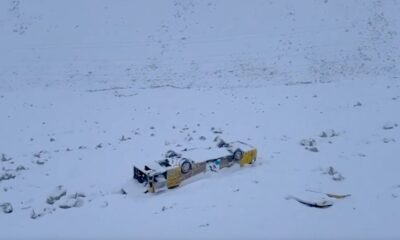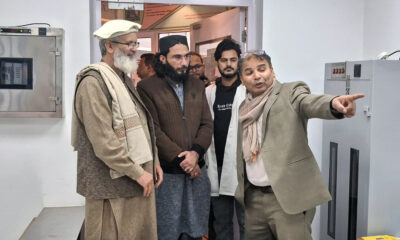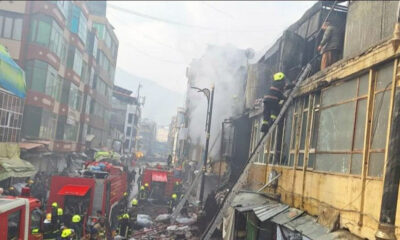Latest News
Ghani calls for talks to be based on Holy Quran and Sharia Law
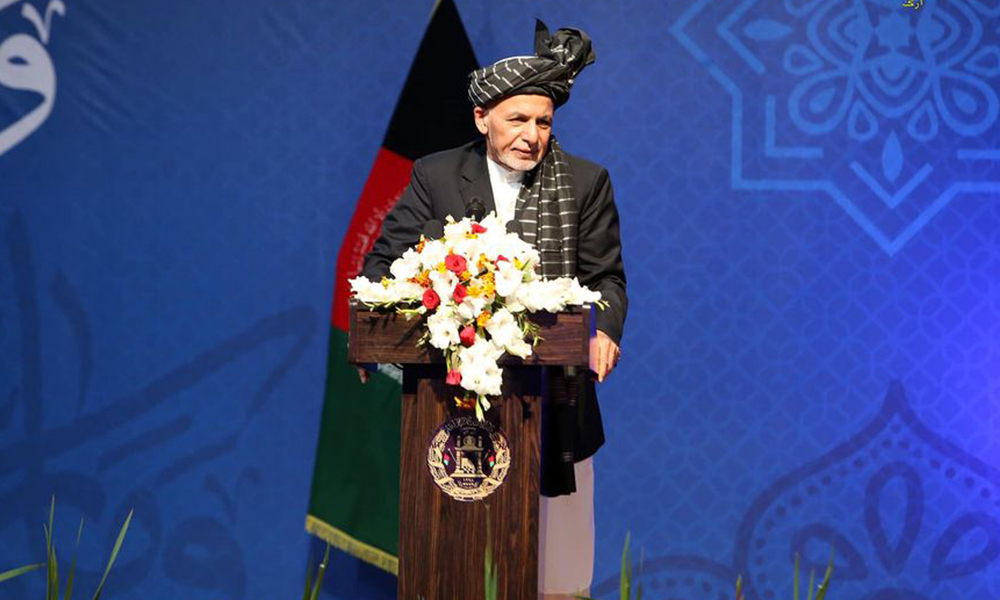
President Ghani said Thursday that peace negotiations, currently underway in Doha, should be based on the Holy Quran and Islamic law (Islamic Sharia).
Addressing a ceremony at the Ministry of Defense, on the occasion of the Prophet Mohammad’s birthday, celebrated by Muslims across the world, Ghani slammed the Taliban stating that the group has fought for 40 years in the name of religion, but now, instead of the rules of Islamic law, the Taliban insist on the US-Taliban deal as the foundation of the talks.
The US-Taliban deal was signed in Doha in February – an agreement that paved the way for peace talks between the Afghan government representatives and the Taliban.
Talks started on September 12 but have been mired in disputes between the two teams with the main hurdle being that of jurisprudence on which to base negotiations going forward.
Raising the issue Thursday, Ghani also stated that “Afghanistan Defense and Security Forces are guardians of the Afghanistan Constitution,” which is one of the most Islamic-centered constitution’s in the world.
“As an Islamic country, governed by an Islamic government, we are honored that the construction process of over one thousand mosques across the country is being completed,” he noted.
Ghani pointed out that what can be done through peace, cannot be done through war, calling the ongoing bloodshed in the country “illegitimate”.
He also pointed out the unity between Hanafi and Ja’fari jurisprudences in the country and said Islamic civilization was second to none, but others were plunged in darkness, underlining that there is no link between the holy religion of Islam and terrorism.
Latest News
Afghanistan signs 30-year deal for marble mining in Daikundi

The Ministry of Mines and Petroleum of Afghanistan has signed a 30-year agreement with a private company to extract marble in Daikundi province.
Under the contract, the company will invest AFN 283 million in exploring and mining marble at the “Mesh-Uliya” site, spanning 16.74 square kilometers in central Daikundi.
Hedayatullah Badri, Minister of Mines and Petroleum, stated that the marble will be processed domestically before being exported abroad. He added that the Mesh-Uliya project is expected to create around 200 jobs, and the company is committed to supporting local communities through social initiatives.
Economic experts highlight that such investments, especially those focusing on domestic processing, are crucial for job creation, boosting exports, and strengthening the national economy. Analysts further note that the project will improve local infrastructure, expand social services, and enhance the economic and social well-being of Daikundi residents.
Since the return of the Islamic Emirate to power, efforts to develop Afghanistan’s mining sector have intensified, with multiple contracts signed in areas including cement, copper, iron, and lapis lazuli, involving both domestic and international companies.
Latest News
Passenger bus veers off Salang Highway, leaving 5 dead, dozens injured
Latest News
Major fire in Mandawi Kabul market contained, extensive losses prevented
Local shopkeepers said the fire broke out around 4 a.m.
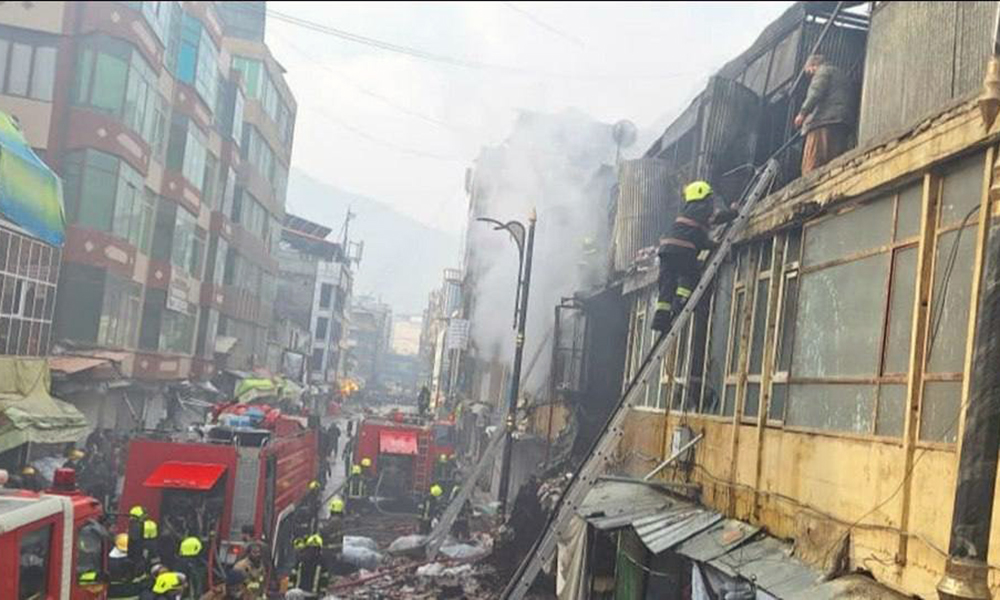
The Ministry of Interior reported that personnel from the General Directorate of Firefighting and Emergency Response successfully prevented the further spread of a fire at Mandawi market on Kabul early Sunday morning.
Abdul Mateen Qani, spokesperson for the ministry, said that the fire destroyed 10 storage facilities and 8 shops. He added that initial losses are estimated at around $700,000, but timely action by firefighting personnel saved property worth approximately $2.2 million.
Qani explained that the fire was caused by an electrical short circuit. He praised the rapid and effective containment operations, which prevented more extensive damage.
Local shopkeepers said the fire broke out around 4 a.m.
-

 International Sports5 days ago
International Sports5 days agoIPL 2026: Teams take shape after auction as franchises balance star power and depth
-

 International Sports5 days ago
International Sports5 days agoILT20: Abu Dhabi Knight Riders end Desert Vipers’ unbeaten run in dramatic one-run win
-

 Latest News3 days ago
Latest News3 days agoAfghan border forces prevent illegal entry of hundreds into Iran
-
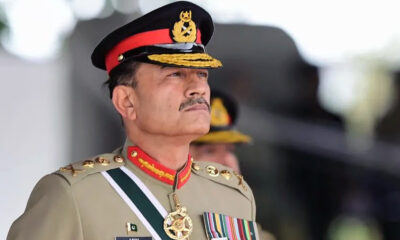
 Regional5 days ago
Regional5 days agoPakistan’s military chief Asim Munir in spotlight over Trump’s Gaza plan
-

 Latest News2 days ago
Latest News2 days agoPakistan summons Afghan diplomat over deadly attack in North Waziristan
-

 Business5 days ago
Business5 days agoMahirood Customs leads Iran’s exports to Afghanistan
-

 World5 days ago
World5 days agoTrump adds seven countries, including Syria, to full travel ban list
-
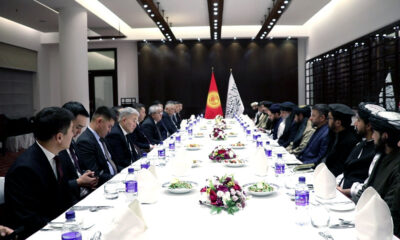
 Latest News5 days ago
Latest News5 days agoAfghanistan, Kyrgyzstan discuss expanding trade and economic cooperation








